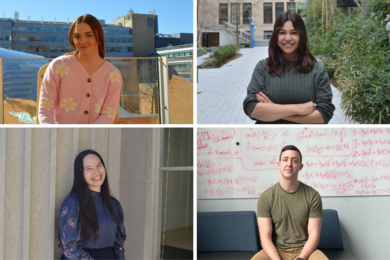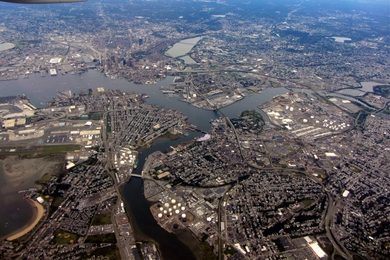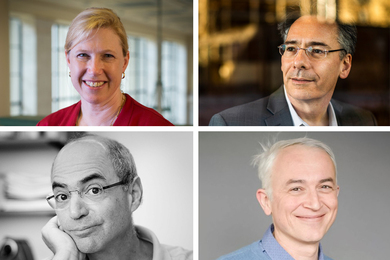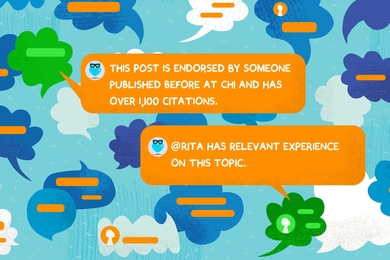Premier Zhu Rongji of the People's Republic of China will visit MIT on Wednesday, April 14 to deliver a major address on science, technology and education that will be broadcast live in the United States and around the world.
The event, restricted to the MIT community and invited guests, will be held in Kresge Auditorium. Due to the limited number of seats, a web-based lottery will be held April 5-6 for MIT employees and students to gain entrance; they will be notified April 8. Faculty members should contact the dean of their school for tickets.
President Charles M. Vest said, "MIT has the opportunity and the obligation to foster discussion of important issues about today's global society. We are very fortunate to host world leaders from time to time.
"I am very pleased that Premier Zhu Rongji will visit MIT and share his thoughts about science, technology and education. Last September I wrote to Premier Zhu to invite him to visit MIT and address our community. I had met with him in Beijing in 1995, and we discussed science, technology, education, the economy, and issues of energy and environment.
"Interestingly, Zhu was then and still is the dean of the business school at Tsinghua University in Beijing. The Sloan School has a substantial educational initiative with Tsinghua, and with Fudan University in Shanghai."
"MIT faculty and students are involved in many projects in the PRC, ranging from working with high school students to establish Internet communication to a major environmental study of coal combustion throughout that nation," said Dr. Vest.
The address at MIT is one of the major events of Premier Zhu's visit to the United States next month. It will be carried live by CNN on its national and international channels, and Chinese TV also plans to broadcast it live, CNN officials said. The speech is to be given in CHinese with simultaneous translation; the audience will have headsets. The speech will be shown on MIT Cable around the campus in public spaces.
In recent articles, the New York Times has described the premier as "blunt-speaking" but with a "casual style." The late Chinese leader Deng Xiaoping said of him, "Zhu has his own views, dares to make decisions and knows economics." The Encyclopedia Britannica in 1993 called him an "economic reformer" and commented, "Vice Premier Zhu Rongji [is] a no-nonsense technocrat much admired in the West."
Premier Zhu will be at MIT for a little over an hour on the morning of April 14, but the precise timing of his arrival and speech is still under discussion.
He announced his visit to the United States on March 15 at a time of tension over questions of nuclear secrets and human rights. "Of course, it will not be easy for me to go to the United States in such an atmosphere," he told a 90-minute news conference broadcast live in Beijing. "My goal is to let you vent your anger and complaints and to tell you the truth -- and to regain the momentum of building a strategic partnership between China and the United States," he said.
The New York Times reporter commented, "Mr. Zhu's casual style made the serious conflicts percolating between the two nations seem more like spats between old friends."
Mr. Zhu, an electrical engineer, has been a planner, teacher, engineer, economist, mayor of Shanghai and governor of the central bank, as well as vice premier. He was named the fifth premier of the People's Republic of China in March 1998.
Mr. Zhu was born in October 1928 in Changsha, capital of central China's Hunan province. He joined the Communist Party in October 1949 and got his degree in electrical engineering at Tsinghua University in Beijing, the leading technical university in China. His first job was deputy head of the production planning office of the Northeast China Ministry of Industries. From there, he went to the State Planning Commission, where he worked 17 years.
During the Cultural Revolution from 1970-75, he was transferred to work at the May Seventh Cadre School, a kind of farm for reeducation. From 1975-79, he was deputy chief engineer for a company run by the Pipeline Bureau and also served as director of the Industrial Economic Institute under the Chinese Academy of Social Sciences.
From 1979-87, he worked with the State Economic Commission as a deputy director, a member and then vice minister in charge of thecommission. In 1987, he was appointed mayor of Shanghai, where he improved telecommunications, construction, transportation and development of the area. In 1991, he became vice premier and director of the State Council Production office.
In 1993, Mr. Zhu was named governor of the Bank of China, the central bank. The Encyclopedia Britannica commented, "In his take-charge style, Zhu quickly moved to tighten the money supply by restricting credit, cutting back on government spending, increasing savings through compulsory government bond purchases, slashing capital purchases, and strengthening price controls that still remained. The effects on property prices and construction activity were immediate and dramatic."
In his news conference two weeks ago, Mr. Zhu talked of China's eagerness to be admitted to the World Trade Organization, for years an issue in Chinese-American relations. Regarding the economy, he said the government would not devalue its currency and would no longer prop up insolvent companies, the New York Times reported.
Mr. Zhu will be accompanied by his wife, Madame Lao An. They have known each other since childhood and attended both Hunan First Provincial Middle School and Tsingha University together. They have a son and a daughter.
A version of this article appeared in the March 31, 1999 issue of MIT Tech Talk (Volume 43, Number 24).






